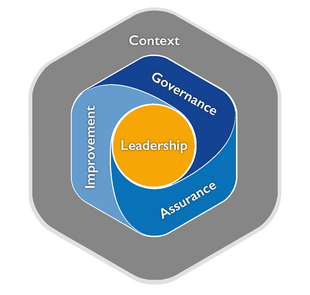
Why you should work in the nuclear industry
Progress indicator

Amanda McKay, FCQI CQP, nuclear quality director at Balfour Beatty, reveals the emerging opportunities for quality professionals in this sector.
In recent years there has been something of a renaissance in the UK nuclear sector.
With the construction of new nuclear power stations and the ongoing decommissioning of redundant facilities, the sector has seen a real growth in the volume of construction work taking place.
As the sector continues to grow, the quality profession will be critical to meeting the challenges and managing the requirements for quality in both new build nuclear and decommissioning.
The real challenge for the quality community is a shortage of professionals with the right skills and experience, but there are opportunities for those wanting to enter the field to develop and grow.
As nuclear quality director for construction organisation Balfour Beatty, I know only too well how this sector can be a great career choice for budding quality professionals.
What role does quality play in the nuclear industry?
The nuclear sector takes quality very seriously as it underpins the safety and assurance aspects of everything we do. The ‘right first time’ culture is also strong within the industry.
Most quality professionals in the sector today have worked in the industry for many years, accruing a vast array of knowledge and experience, but they are ageing. Continuous learning is essential for both the ongoing operation of nuclear facilities and the planning for decommission.
An in-depth knowledge of standards, legislation and the principles for ensuring nuclear safety are a key part of the skill set required for this industry.
The CQI’s Nuclear Special Interest Group (NucSIG) has developed a comprehensive document covering nuclear quality knowledge and skill requirements.
But the recent drive towards New Build nuclear has not only brought about a need for reviving old skills learned during the construction of the last round of nuclear power stations, but also an understanding of the new technologies and methods used in construction today.
Plus, an understanding of a supply chain that stretches across the globe. As a result, a number of reports have been published on the skills shortage in the nuclear sector and the lack of new entrants in the past decade, most notably the CQI’s nuclear research from June 2012 and Cogent Skills Next Generation Skills for New Build Nuclear research.
Quality has been highlighted as an urgent case for many reasons, including the increasing demand for people due to the projected increase in work volumes.
It is forecasted that 1,000 more quality professionals will be required in the next few years just for the Nuclear New Build Programme, with potentially five new nuclear power stations to be built. We need new, emerging talent to come into the field. That could be you.
What opportunities are currently available?
The current environment for those entering, or thinking of entering, the sector has never been better – with lots of present and future opportunities. The CQI’s ‘repositioning of the profession’ initiative and new Competency Framework (outlining the competencies quality professionals need to do their jobs better) have helped address the perception of quality and bring new people in.
Further work is being conducted around the CQI’s qualifications structure and membership grades, and this should strengthen the role and importance of the CQI to employers in the sector.
Sector skills organisations, such as Cogent Skills and the National Skills Academy for Nuclear (NSAN), have also started to look at the ‘competence’ skill and what this looks like in the New Build and decommissioning sectors. Both are working with employer organisations to deliver appropriate training, development programmes and competence profiles.
Some employers in the sector have already taken the lead in developing training programmes to train the next generation. Sellafield have led the development of apprenticeship schemes in quality-related fields under the Government’s ‘trailblazer’ model, the first being a nuclear welding inspection technician apprenticeship covering quality control specialisms.
It is now moving on to develop a quality assurance-based apprentice scheme.
Balfour Beatty has also developed a training programme about quality, which it hopes will help fulfil the requirements for the current and future needs of our nuclear construction projects.
Our first trainee quality engineer is in place and will be following a training programme developed in-house. We intend to train many more in the future.
For the next generation of quality professionals I urge this – consider the nuclear industry as a career choice. Opportunities in the nuclear construction sector are good at the moment and will increase as New Build start in earnest.
The skills shortage in nuclear quality is an issue that must be addressed and it’s good to see that not only the CQI, but employers and sector skills bodies, are recognising the problem and developing entry routes for new starters and those wishing to change careers.
Amanda McKay, FCQI CQP, is nuclear quality director at Balfour Beatty and sits on the CQI’s Board of Trustees.
Join the NucSIG
The CQI’s Nuclear Special Interest Group (NucSIG) provides a forum for CQI members and quality professionals in the nuclear sector to share experience and knowledge with their peers.
Member only

This article is free to access for a limited time only. Only CQI and IRCA members receive access to all content.
The Profession Map

Your route to success - equipping modern quality leaders to meet evolving business demands.
